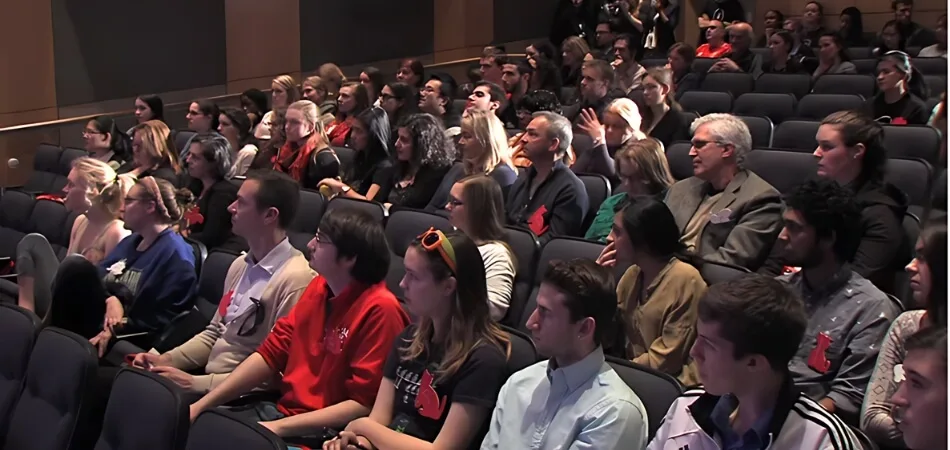An abstract is a short summary that tells others what your research is about. It gives a quick idea of your study before they see the full work. Many people keep wondering, can I submit an abstract to a conference without the results?
Yes, you can submit an abstract to a conference without results if the conference allows work-in-progress submissions. Focus on explaining your research problem, methods, and expected outcomes. Emphasize the value of the study and future steps. Always check the conference’s guidelines or ask organizers to confirm requirements.
Are you curious about when it is accepted and when it is not? If yes, then keep reading this article because here you will find every important detail. You will see what to include, what to avoid, and how to improve acceptance.
Can I Submit an Abstract to a Conference Without the Results?
Submitting an abstract to a conference can feel confusing at first. Some people think they must wait until all results are ready. Others wonder if sharing ideas early is allowed or useful. To clear this up, let’s go through the details together.

Ongoing Work
Many conferences accept research that is not yet complete. Instead of waiting for final data, you can talk about what has already been done and what is planned next. Sharing ongoing work helps you stay involved and also keeps your research moving.
Method Focus
Highlighting your research approach is often enough for some conferences. You can describe the design, the structure, and the tools you plan to use. A well-explained method gives reviewers confidence that your project is serious and reliable.
Helpful Feedback
Presenting your abstract early can give you valuable advice. Others may point out gaps, offer improvements, or suggest better directions. Getting this feedback before finishing can save time and also strengthen the quality of your final research.
Early Findings
Even if you do not have final outcomes, partial data helps. Small sets of numbers or short observations show your project is active. These early findings give a preview of where the research is heading and build confidence.
Research Value
Explaining why your project is important can impress reviewers. Show the problem you want to solve and why it matters. A strong focus on research value can balance the absence of results and still make your abstract interesting.
Future Steps
Telling people what you plan to do next is useful. Share your timeline for gathering results, how you will analyze them, and what you expect to find. If you’re preparing for upcoming conferences, this section makes your work look well-structured.
Field Rules
Different fields of study have different abstract requirements. Some scientific conferences want only completed data, while others are open to progress reports. Checking the norms of your field before sending your abstract is always a smart choice.
Clear Instructions
Every conference has its own submission rules that must be read carefully. Some clearly allow unfinished work, while others ask for complete results. If the instructions feel unclear, contact the organizers directly for correct confirmation before submission.
Submitting without results is possible when you focus on other parts. Always highlight the methods, the research importance, and the next steps. Make sure to carefully check the rules of the conference. Prepare your abstract clearly so it stands a good chance.
When Is Submitting an Abstract Not Allowed to a Conference Without the Results?
Submitting an abstract without results can sometimes be tricky. Different conferences and sessions have their own rules about what needs to be included in the submission. Before sending in your abstract, it is important to know what rules apply. Keep reading to see more details.
Clinical Trial Rules
In medical and clinical trial conferences, results are often required at the time of submission. This is because the review committee wants to see completed data to judge the reliability and usefulness of the study. Submitting without results in such cases may lead to rejection.
Medical Session Needs
Some medical sessions, especially those that deal with patient outcomes, demand clear results when submitting. The organizers expect to see proof of findings instead of just planned research. This helps them make sure the presented work benefits the scientific community.
Call for Papers
When a conference issues a call for papers, it sometimes clearly states whether results are mandatory. If the rules mention that data must be included, then submitting without it will not be accepted. Always read these instructions carefully before preparing your abstract.
General Exceptions
There are conferences that allow abstracts without results, especially if the research is still in progress. In such cases, they may accept preliminary findings or even proposals for discussion. But this depends on the type of session and the conference theme.
Good Practice
It is always best to double-check the submission guidelines. If you are unsure, contact the conference organizers to confirm whether results are needed. This avoids rejection and saves your effort. Being clear on requirements makes the process much smoother.
Submitting an abstract without results depends on the type of conference, session, and stated rules. Reading the guidelines closely and asking when in doubt is the safest way to handle it.
What Should I Include in the Abstract if I Do Not Have Results?
When you do not yet have results, it can feel confusing. Many people wonder what to add in an abstract without findings. The truth is, you can still share useful details. Keep reading to learn what should be included step by step.
Study Background
Explaining the importance of your topic is always the right start. You can describe the main problem or question that led you to do this research. Highlight the reason why this issue is worth studying, and explain how your work connects with a bigger picture of knowledge.
Clear Objective
Your abstract should tell the reader exactly what you want to achieve. Write about the main aim of your study in plain words. The goal could be solving a problem or answering a question. By doing this, your audience will understand what your study is trying to discover.
Data Plan
It is helpful to mention the kind of data you plan to use. You can talk about the type of sample or group that is included. Even if you do not have results yet, readers will know the focus. This step makes your abstract more complete.
Research Methods
Describe how you are planning to collect or study the information. This might include the tools, techniques, or steps that you are using. Even without results, you can still write abstract for conference presentation by focusing on the process and how it connects with your main research goal.
Current Status
You can be honest about the stage your work is in right now. If the study is still running, say clearly that analysis or data collection is ongoing. Also, mention what you expect to present on the day. This shows confidence and keeps expectations realistic.
Here’s a sample you can check out. Download PDF
Writing an abstract without results is possible with a clear plan. You need to highlight the problem, the aim, and the steps. Readers will still see the value of your research. Honest details make your abstract strong, clear, and complete.
What Word Count and Format Should I Use for an Abstract if There is Not Result?
Submitting an abstract without results can feel confusing, especially when word count and format rules are not always clear. The right approach depends on the type of conference and the instructions they give. Let’s explore some key points to make it easier.
| Aspect | Recommendation |
| Word Count | 200–300 words unless the conference specifies a different limit |
| Format Style | Structured if template requires headings (Background, Objective, Methods, etc.) |
| Flexibility | Some conferences allow shorter or longer lengths based on topic |
| Without Results | Focus on the background, aim, and methods clearly |
| Best Practice | Always follow the official abstract guidelines for that event |
Word Count
Most conferences set their abstracts around 200 to 300 words. This keeps the submission short yet informative. If the event gives a different word limit, always follow that instead. Going beyond the allowed count can lead to rejection.
Structured Format
Some conferences ask for a structured format with sections like Background, Objective, Methods, Results, and Conclusion. If your research has no results yet, you can still fill in the other parts. This format helps reviewers understand your work step by step.
Flexible Style
Not all conferences follow the same abstract style. Some allow free-flowing text without headings, while others demand structured sections. Formatting becomes clearer once you know the difference between conference abstract and paper abstract, since the length rules are not always the same.
Without Results
If you do not yet have results, focus on the background, purpose, and methods. Explain why your study is important and what it plans to achieve. Many reviewers accept this, as long as your research idea is strong and well presented.
Best Practice
Always read the abstract submission guidelines carefully before writing. If anything is unclear, reach out to the organizers for confirmation. This helps you avoid mistakes and ensures your abstract fits their format and word count perfectly.
The right word count and format for an abstract depend on each conference. Clear writing, following instructions, and asking questions when needed will give your abstract the best chance of being accepted.
How Do I Avoid Rejection of an Abstract Without Results for Conferences?
Submitting an abstract without results can feel stressful because many conferences have strict rules for acceptance. Careful writing and following the instructions closely can reduce the risk of rejection. Let’s go through some useful tips that can help you.
- Word Limit: Matching the exact word count required by the conference makes your abstract look polished and complete, while ignoring the limit can cause instant rejection.
- Headings: Following the requested headings and structure shows that you respect the submission rules, which is something reviewers always notice.
- Template: Using the official template exactly as provided avoids confusion and ensures your abstract looks consistent with other submissions.
- Methods: Making your methods section clear and specific proves that your study is carefully planned, even if results are not included yet.
- Analysis Plan: Explaining how you plan to analyze the data shows reviewers that your research design is serious and worth considering.
- Claims: Avoiding claims that you cannot support is important, as exaggerated statements can make reviewers question the trustworthiness of your work.
- Clarity: Keeping your sentences short and clear helps reviewers quickly understand the focus of your study without losing interest.
Rejection of an abstract without results can be avoided by focusing on clarity, structure, and honesty. Following the rules exactly shows commitment and increases your chances of acceptance at the conference.
What if Results Arrive Before the Event for Your Abstract?
Sometimes your research results arrive after you have already submitted the abstract. This can make you wonder how to handle the new information properly. Conferences usually have rules about updating abstracts and presentations. Let’s see what options you might have in this situation.
Update Abstract
If organizers allow changes, you can update your abstract before the event. Adding real results makes your work stronger and more convincing. Always follow the conference rules closely to avoid problems. A clear, updated abstract gives the audience the best picture.
Present Results
When updates are not allowed, you can still show results on stage. The important part is to be clear about what has changed. Presenting real data makes your talk stronger and gives the audience more value. Be honest and open about the differences.
Ask Organizers
Sometimes rules about updates are not clear, so it is smart to ask. Sending a short message to the organizers can save confusion later. They will confirm if changes are allowed. Direct answers from them guide you in the right way.
Prepare Slides
Your presentation slides are a good place to add the results. Even if the abstract cannot be updated, the slides can highlight the new findings. Make them clear and easy to follow. This helps the audience understand your work completely.
Be Transparent
Audiences appreciate honesty when research changes after submission. You should point out that the results came in after the abstract was written. Transparency builds trust and shows you respect your listeners. This makes your presentation more reliable and professional overall.
Getting results after sending an abstract is not unusual at all. The key is to follow the event rules carefully and act clearly. Always update if you are allowed and explain changes if not. Keeping things simple and honest is the best choice.
FAQs About Can I Submit an Abstract to a Conference Without the Results?
Submitting an abstract without results often raises many doubts. People want to know if it is allowed, how to handle it, and what reviewers expect. To clear the confusion, here are some of the most common questions and answers, including whether can you submit an abstract without results and how it may be viewed by different conferences.
Can I Submit Without Results If My Research Is Still in Progress?
Yes, many conferences accept abstracts for ongoing research. You should focus on your study background, objectives, and methods. Make sure to explain the importance of your project clearly. This way, reviewers can still see its value even without results.
Will My Abstract Look Weak Without Results?
Not necessarily. A well-written abstract that explains the methods, goals, and importance of the study can still look strong. Reviewers often judge the clarity and design of the research. If your plan is solid, your abstract can still stand out.
Should I Add Expected Results to My Abstract?
You can mention expected outcomes if the conference allows it. Keep them realistic and avoid making promises you cannot keep. Stating what you hope to find gives direction without misleading reviewers. Honesty and balance make your abstract more reliable.
Do All Academic Fields Allow Abstracts Without Results?
Different fields follow different rules. For example, clinical and medical conferences usually require complete results, while others may accept progress reports. Always check the norms of your field. Following those standards helps you avoid unnecessary rejection.
How Do Reviewers Judge Abstracts Without Results?
Reviewers usually look for clarity, structure, and strong methods. They want to know that your study is designed carefully. If you explain the research importance and process clearly, reviewers often accept it. Good writing can cover for missing results.
Can I Use Preliminary Data Instead of Final Results?
Yes, using small or early findings is often a good option. Even partial data shows that your research is active. Reviewers like to see evidence that work is underway. This can make your abstract more convincing and trustworthy.
Should I Inform Organizers About Missing Results?
It is a good idea to mention it directly in your abstract. Saying that results are pending shows honesty. Reviewers appreciate transparency more than forced information. Being upfront prevents confusion later during the conference presentation.
Will I Get Feedback If I Submit Without Results?
Yes, many conferences encourage feedback on early research. Submitting without results allows others to suggest improvements. Reviewers or attendees might guide you in refining your project. This feedback can help you strengthen your study before it is completed.
Is It Better to Wait for Results Before Submitting?
Waiting may not always be the best choice. Submitting early helps you get feedback and stay involved in your field. If the conference allows unfinished work, it is better to share what you have. This keeps your research active and visible.
Can I Update My Abstract Later If Results Arrive?
Some conferences allow updates before the event, while others do not. If updates are possible, adding real results makes your abstract stronger. If not, you can still present results in your slides. Always check the rules and confirm with organizers.
Conclusion
Submitting an abstract without final results is not a barrier if you understand what conferences look for. Focusing on background, purpose, and methods allows you to share valuable details that highlight the strength of your project and your ongoing commitment.
The common question is, can I submit an abstract to a conference without the results? The short answer is yes, many conferences allow it. You only need to present your research plan, current progress, and expected contributions with honesty and clarity.
To improve your chances, always read submission rules carefully and follow them closely. Keep your abstract short, clear, and structured. Share your methods, value, and next steps with confidence. Best wishes for your submission and presentation success.








